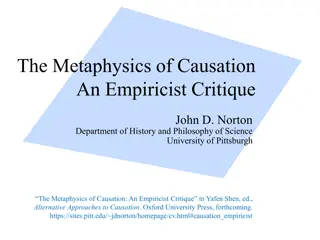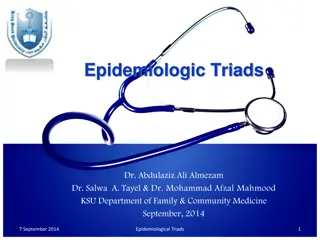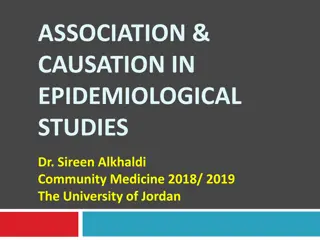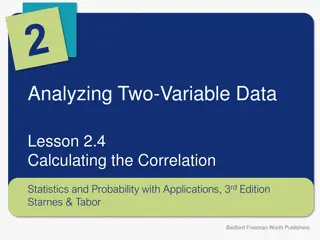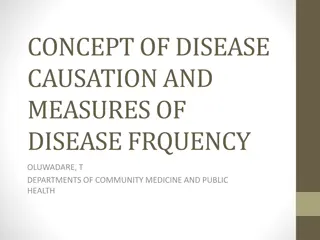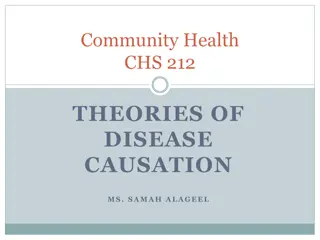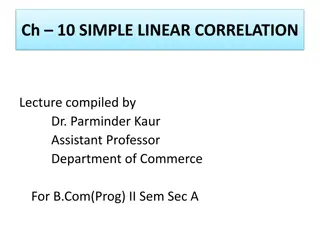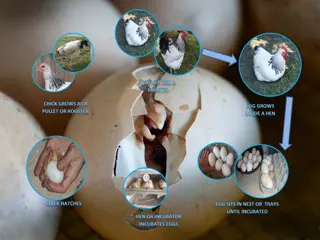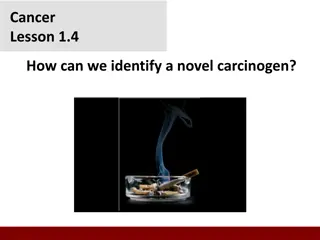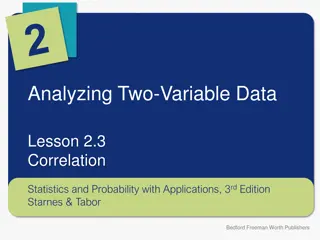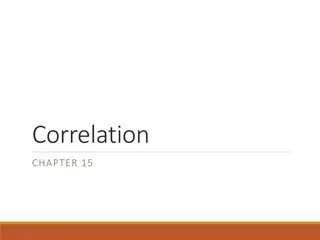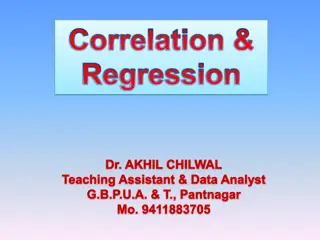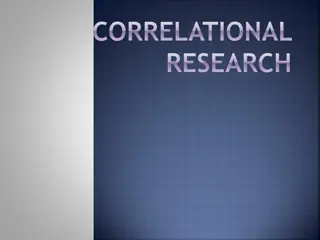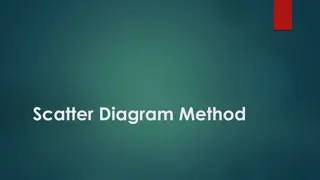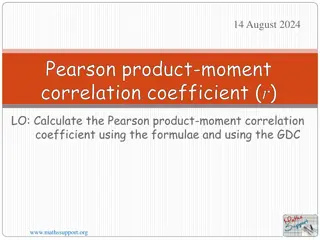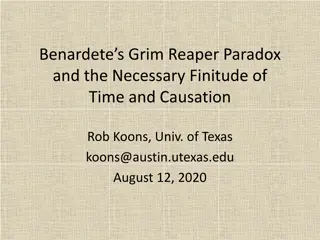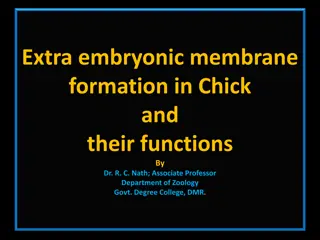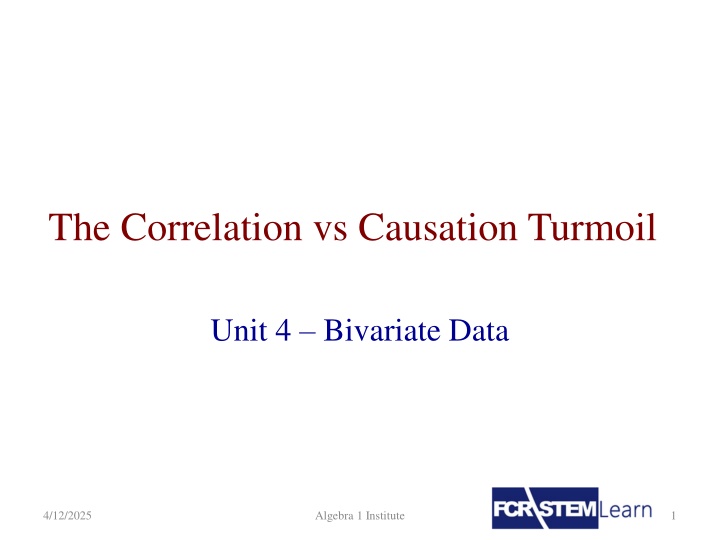
Correlation and Causation in Data Analysis
Learn about the distinction between correlation and causation in statistics through real-world examples such as the relationship between eating breakfast and student performance, and the correlation between watching soap operas and eating disorders. Discover how correlated occurrences may stem from a common cause, and when correlation can actually indicate causation. Dive into the complexities of interpreting data relationships in the field of algebra.
Download Presentation

Please find below an Image/Link to download the presentation.
The content on the website is provided AS IS for your information and personal use only. It may not be sold, licensed, or shared on other websites without obtaining consent from the author. If you encounter any issues during the download, it is possible that the publisher has removed the file from their server.
You are allowed to download the files provided on this website for personal or commercial use, subject to the condition that they are used lawfully. All files are the property of their respective owners.
The content on the website is provided AS IS for your information and personal use only. It may not be sold, licensed, or shared on other websites without obtaining consent from the author.
E N D
Presentation Transcript
The Correlation vs Causation Turmoil Unit 4 Bivariate Data 4/12/2025 Algebra 1 Institute 1
Correlation & Causation Causation: an action or occurrence can cause another Example: smoking causes lung cancer Correlation: two things occur together Example: smoking is correlated with alcoholism If one action causes another, then they are most certainly correlated. But 4/12/2025 Algebra 1 Institute 2
Correlation & Causation just because two things occur together does not mean that one caused the other, even if it seems to make sense. http://www.tylervigen.com/ 4/12/2025 Algebra 1 Institute 3
Eating Breakfast and Success in School Eating breakfast has long been correlated with success in school for elementary school children It would be easy to conclude that eating breakfast causes students to be better learners. However, those who don t eat breakfast are also more likely to be absent or tardy It is absenteeism that is playing a significant role in their poor performance. When researchers retested the breakfast theory, they found that, independent of other factors, breakfast only helps undernourished children perform better. http://stats.org/in_depth/faq/causation_correlation.htm 4/12/2025 Algebra 1 Institute 4
Girls and Soap Operas Girls who watch soap operas are more likely to have eating disorders Correlation between soap opera watching and eating disorders Causation? Therefore, our results suggest that if young girls watch soaps and music television often, this is related to higher restrained eating and body dissatisfaction we cannot say anything about causality. Anschutz et al. (2009). Watching your weight? The relations between watching soaps and music television and body dissatisfaction and restrained eating in young girls. Psychology and Health 24 (9) 1035-1050. 4/12/2025 Algebra 1 Institute 5
Correlation & Causation Correlated occurrences may be due to a common, underlying cause Example: Red hair is correlated with blue eyes Stems from a common genetic specification which codes for both 4/12/2025 Algebra 1 Institute 6
Correlation & Causation Correlation may also be observed when causality exists Example: It is well-established that cigarette smoking not only correlates with lung cancer, but actually causes it. To establish cause, we would have to rule out the possibility that smokers are more likely to live in urban areas, where there is more pollution Or any other possible explanation for the observed correlation. 4/12/2025 Algebra 1 Institute 7
We Like Explanations! In general, we should be wary of our own bias The media often concludes a causal relationship among correlated observances when causality was not even considered by the study itself. Without clear reasons to accept causality, we should only accept correlation. Two events occurring in close proximity does not imply that one caused the other, even if it seems to makes perfect sense. 4/12/2025 Algebra 1 Institute 8
Videos TED talk The danger of mixing up causality and correlation: Ionica Smeets http://www.youtube.com/watch?v=8B271L3NtAw FreakonomicVideos Correlation vs Causality http://www.youtube.com/watch?v=t8ADnyw5ou8 4/12/2025 Algebra 1 Institute 9

